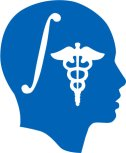 NA-MIC Project Weeks
NA-MIC Project Weeks
Back to Projects List
Automated Registration of Cone-Beam Computed Tomography
Key Investigators
- Anchling Luc (University of Michigan)
- Nathan Hutin (University of Michigan, France)
- Marcela Grugel (University of Michigan, USA)
- Selene Barone (University of Michigan, USA)
- Felicia Miranda (University of Michigan, USA)
- Sophie Roberts (University of Melbourne, Australia)
- Juan Prieto (University of North Carolina, USA)
- Lucia Cevidanes (University of Michigan, USA)
Project Description
Automated clinical decision support systems rely on accurate analysis of three-dimensional (3D) medical and dental images to assist clinicians in diagnosis, treatment planning, intervention, and assessment of growth and treatment effects. However, analyzing 3D images requires orientation and registration, which are tedious and error-prone tasks.
This project proposes two novel tools that can automatically perform the orientation and registration of 3D Cone-Beam Computed Tomography (CBCT) scans with high accuracy. Our work aims to reduce the sources of error in the 3D image processing workflow by automating these operations. These methods combine classical algorithmic approaches and AI-based models trained and tested on de-identified CBCT volumetric images.
The registration method is based on an automatic tool AMASSS to perform a segmentation of the different regions of reference (described here) used for the regional voxel-based registration
Our code is available here
The different methods for automatic orientation and registration of 3D CBCT scans rely on a combination of algorithmic and deep-learning techniques to perform both the orientation and the registration automatically. It also uses work that our group of researchers has already developed. Our Python-based algorithm and requires multiple libraries for the different image-processing tasks accomplished throughout the proposed method: SimpleITK \cite{Lowekamp2013-jt}, VTK \cite{Schroeder2006-ab}, SimpleElastix \cite{SimpleElastix}. To implement these tools, we also used the Medical Open Network for Artificial Intelligence (MONAI) library, which is a PyTorch-based framework for medical image analysis. MONAI offers several advantages for our work, such as high performance, modularity, and interoperability with other libraries.
Objective
- Continue to develop the Slicer tool
- Deploy AREG CBCT in the Slicer extension SlicerAutomatedDentalTools
Approach and Plan
- Find a method to perform the Automatic Registration of CBCT
- Implement this method with a python script
- Use the previous work done on developing other Slicer Extensions to develop the AReg extension for Slicer
Progress and Next Steps
- Method and script working
- Slicer Extension created and progress made on developing it
- Deploy AReg tool to the SlicerAutomatedDentalTools
- Validating the tool via method paper